Loitering munitions, weapons that can ‘loiter’ above a battlefield and wait for their target, are being sought by the Royal Navy to enhance the capabilities of its warships.
According to a pre-procurement notice published by the Ministry of Defence, the DE&S Future Capability Group (FCG), in conjunction with the Royal Navy, “are looking to demonstrate a modular (20ft ISO container) medium size loitering munition automated launch and storage POD”.
More about the PODS concept later.
The notice adds that the project end state is seeking to establish the viability of, and to provide, a deployable integrated launch module for loitering munitions through a successful maritime, land and littoral concept demonstration.
Industry advice is sought on the cost and timeframes of key phases of activity to develop and demonstrate an initial concept system culminating in a number of live fire events.
The questions asked in the request for information from industry are as follows.
This RFI invites industry to assist in establishing cost and time estimates for the project in the following areas:
1. Design, build, prepare and physical integration of systems into an ISO container POD;
2. Procurement of medium sized loitering munitions to integrate into the ISO container POD;
3. and, subsequent demonstrations to include deployment of ISO container POD, targets and range costs.
4. This work is to be a concept demonstration only, in order to provide evidence for, and inform procurement decisions.
5. Type of LM should support a cost-effective approach to a concept demonstration.
6. Costs should include equipment, design, build, integration, safety, targetry and range costs.
7. UK trials are preferential but overseas trials would be warranted in support of a cost-effective programme.
8. Safe storage and maintenance of equipment delivered to support the trial should be considered.
9. Include functionality to enable remote firing.
10. Consider costs for both land and ship-based trials.
11. Assume contractor operated – i.e. no military operators but consider what a training package would look like.
12. If applicable, highlight any support required from any stakeholder OEMs, GFX, delivery partner, safety, integration and range personnel as required.
Wait, what are ‘PODS’?
According to the Royal Navy here, PODS are “Persistent Operational Deployment Systems”.
PODS are interchangeable modules that can be fitted to the surface fleet. Similar in design to a shipping container, the PODS create the idea of a ‘plug and play’ warship and will enable Royal Navy ships of all sizes to be more adaptable and versatile when deployed.
“Delivered using innovative technology such as heavy-lift drones or autonomous boats, a ship will be able to receive the equipment it needs to be re-tasked quicker without the need to go into a port to collect it. Large in size, the PODS will house assets vital to supporting Royal Navy operations. These may include an autonomous boat for surveillance and reconnaissance, quadcopter drones to deliver supplies, humanitarian aid and disaster relief stores or medical equipment. Versatile in their approach, they have the capacity to become an additional medical room for service personnel at sea or a control centre for Royal Marines’ operations.”
What are loitering munitions?
Loitering munitions are a type of military technology that allows for the surveillance and engagement of targets from the air. These weapons are designed to be launched from a variety of platforms, including aircraft, ground vehicles, and ships, and are capable of hovering or patrolling an area for extended periods of time.
One of the key advantages of loitering munitions is their ability to provide real-time surveillance and targeting information to operators. This allows military forces to quickly and accurately engage targets without the need for additional assets, such as manned aircraft or ground troops. This can significantly increase the speed and effectiveness of military operations, particularly in complex or hostile environments.
Loitering munitions are also highly versatile and can be equipped with a variety of payloads depending on the mission requirements. This can include explosives for offensive operations or sensors and cameras for surveillance and reconnaissance. Some loitering munitions are even capable of being controlled or redirected in flight, allowing operators to adjust their course or target based on changing conditions on the ground.
What is the difference between a loitering munition and a kamikaze drone?
One key difference between loitering munitions and kamikaze drones is their intended purpose. Loitering munitions are designed to provide real-time surveillance and targeting information to operators, allowing for the engagement of targets without the need for additional assets. Kamikaze drones, on the other hand, are specifically designed to be crashed into a target, typically with the intention of causing significant damage or destruction.
Another difference is the level of control that operators have over the weapons. Loitering munitions are typically equipped with sensors and cameras that allow operators to monitor the situation on the ground and make adjustments to the weapon’s course or target as needed. Kamikaze drones, on the other hand, are typically pre-programmed with a specific target and are not capable of being controlled or redirected once they have been launched.
Overall, while both loitering munitions and kamikaze drones are broadly similar in terms of outcome and cost, they serve different purposes and operate in different ways.


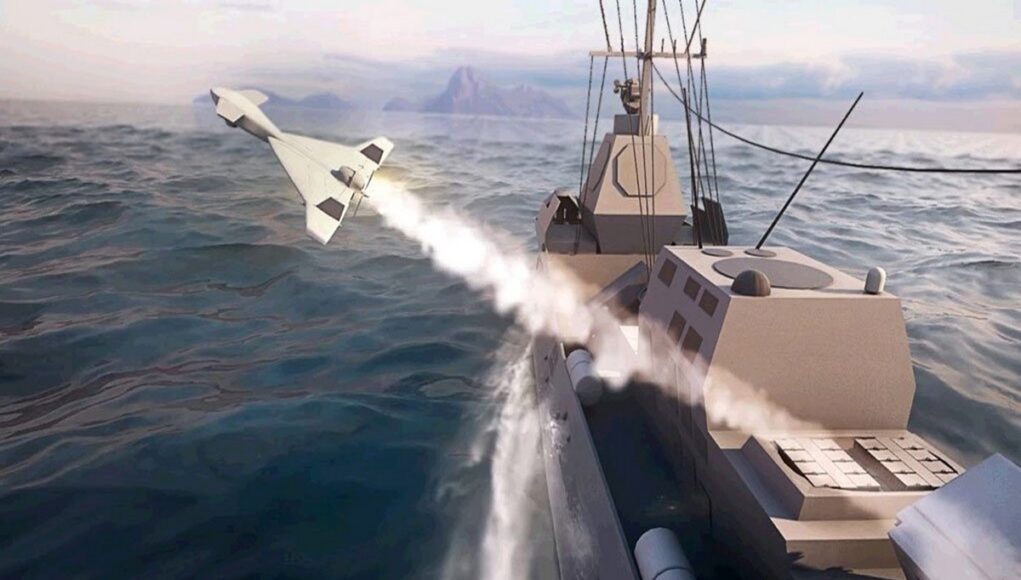

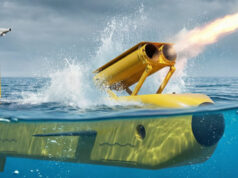
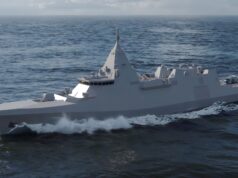
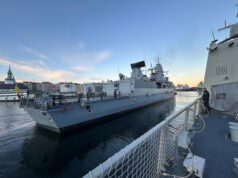
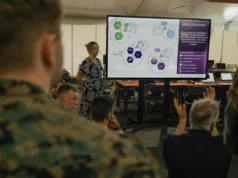

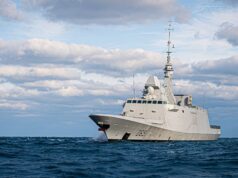
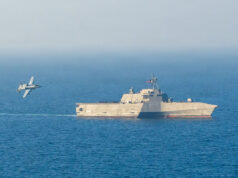
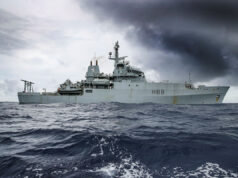
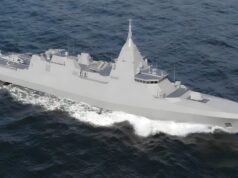

I don’t think a clear cut separation can be made for most systems.
Switchblade models straddle the fence?
Probably tend more toward the kamikaze style, w/ loitering overlay features. 🤔ðŸ˜
Most of these systems can be kamikaze if needed but can also return to base if no target is found.
I do not understand the reason for the clear cut separation by the author. It do not make sense in face of most assets.
NSM (which RN is acquiring) is also capable of of a degree of loitering attack.
How much time can it stay in the air?
but obviously cannot return to base.
ALARM missile had a parachute to loiter.
It is a difficult qualification:
without loitering = missile
with loitering = kamikaze
with loitering, attack and returning capability= loitering munition
???
An Harop and Hero for example can loiter depending on version can loiter for more than an hour and return to base if there is not reason to attack.
Clearly influenced by what’s happening in Ukraine!
Land and Naval options are worth looking into as mentioned in the list
So lets hope it evolves and comes into service in the future.
MBDA Fire Shadow might be an option.
“Fire Shadow will be able to loiter for around 10 hours over the battle zone, waiting for the enemy to appear.
A project to equip the British Army with a loitering munition weapon system has been formally cancelled by the UK Ministry of Defence (MoD). The Fire Shadow system was written off at a loss of GBP95.494 million (USD125.5 million), according to the ministry’s 2017-18 annual accounts, which were published on 20 July. The effort to build the Fire Shadow was part of the army’s ill-fated Indirect Fire Precision Attack (IFPA) programme and was intended to provide land component commanders with a man-in-the-loop precision system capable of striking moving targets out to 50 km and re-tasking the weapon in flight. A small number of launchers and rounds were purchased and test-fired in 2012 but the system never formally entered service as part of a cost-saving drive.”
https://www.thinkdefence.co.uk/2022/11/fire-shadow-loitering-munition/
I wonder if a tad too early for the tech. Drone tech has come along way since 2012 and done it pretty quickly thanks to the wealth of consumer companies making them. A decade ago things were a whole lot less capable
I thought after we developed something like Fire Shadow and spent a hundred million on it, we were supposed to cancel it and fifteen years later buy something foreign at ten times the price.
That is our normal practice 😀
True, and to only buy a fraction of the actual number required.
Silly me and make it half a dozen we’ll pick the other half up later! 😂
What’s the size for Fire Shadow though? It’s not that much heavier than Sea Skua but it’s the width and length, whether if it can fit in racks either vertical or angled.
12 ft length
https://www.gettyimages.co.uk/detail/news-photo/businessmen-inspect-the-12ft-fire-shadow-missile-on-news-photo/527449978
Something like the rack drone launcher, 20-30 drones in each container with 20kg warhead, force the enemy to use up their ammunition then launch your actual anti ship weapons..
Alternative take something for anti-submarine warfare. Your having the drone follow the submarine or loiter over the possible contact waiting until it surfaces.
Of course, a 20 kg payload won’t do much, and the drones somehow have to be able to mimic the various strike missiles used by the RN, otherwise with how certain radars are smart and even older radars can ‘filter’ targets, they could easily shoot down the actual AShM and take a hit from the drones with less severe damage. Perhaps a sort of Radar reflector that mimics the RCS of Naval strike missile we’re getting from the Norwegians or Storm Shadow.
Doesn’t BrightCloud work by being capable of mimicking a whole range of programmable potential targets? Cannot similar technology be useful here or is the relative speed of the drone housing it just not going to cut it in such circumstances unlike something ejected from a targeted jet.
Yes.
The technology can sense and process incoming radar signals and, in response, develop and transmit a counter “ghost†signal mimicking these.
https://www.savunmahaber.com/en/leonardo-britecloud-mq-9-uav-test/
The Harop drone is featured in the head banner image. Youtube video of the drone.
Harop has a box launcher for use on ship. Just bolt 4 each on T31, T45 & perhaps even batch 2 Rivers. 
Indeed. I think they may want something that has snap-out wings and more cylinder like.
Problem you need surface to be able to loiter.
Could a spear 3 missile be adapted for the role?
This latest attempt by the DE&S to justify their existence and waste more millions of taxpayers money is to be deplored. At a time when £12 billion (!!) has been announced to cover “project cost overruns” (read Ajax), we have more F35B than pilots to fly them, the carriers lack Sea Ceptor, the Hawk trainers have been grounded and the CH3 upgrade is proceeding at a snails pace. The MoD needs to get it’s priorities right
If the RN has a need for loitering munitions then we should buy something off-the-shelf.
When was Sea Ceptor ever a consideration for the carriers?
No he made that up.
I don’t think it was, sadly.
But in contrast to those failing projects there are loads of successful programs. Asraam upgrade, typhoon enhancements, sea/land ceptor, lots of army kit, river class, brimstone etc etc.
Things have got a lot better with procurement.
Painting DE&S as a bunch of idiots misses the point. Most of them are quite good.
Most procurement gets surprisingly good value.
MS – I will not deny that there have been successes. The Type 26 mini-cruisers could have been on your list. The problem is the cock-ups far outweigh them. Posters here know about the project disasters, we spend hours discussing Ajax, delays to AESA radars for Typhoon, the Hawk engines, cancelling the order for more A400M etc etc
My point is that we cannot continue developing projects the same old way and expect things to change. They won’t – one way to get more kit for our money (or as the Americans say “more bang for the buck”) is to buy it off-the-shelf. Lots of countries spend less on defence than us, but have heaps more top-notch kit.
Name one?
A change in approach is definitely required. This does not always mean off the shelf. Off the shelf often means outdated old tech rather than leading edge. Sometimes that is the better option. Sometimes it isn’t. It’s a case of applying something called common sense, which despite its name is not that common. Welcome to the real world.
Don’t forget General Purpose frigates with only 12 SAM’s and no sonar
Who says 12 SAMs. Please stop posting this. 24 are planned and FFBNW mark 41.
All images with RN T31 shows 12 cells.
This is an interesting site for the Arrowhead 140 (Link)
It is more of what could have been rather that what is (at least as regarding T31). Everyone knows T31 could have been so much more for relatively little money. Part of the problem for T31 is that some of the decisions will cost real money to reverse. A140 is a good but cheap design. Anyone prepared to buy it on that basis will end up with a NATO standard frigate that will not be out of place in any navy. T31 is, sadly a shadow what could have been.
And a better gun fit/ close in weapon systems than any other frigate. Considering where this ship will be operating and what it’s going to be doing…that just maybe a more intelligent fit.
It’s also going to have mission bays for all the capabilities the RN are now experimenting with as well as the ability to fly off the best ASW small ship fight in the world.
I can’t even see here what target they are aiming for. So what to we know?
There’s no budget associated with it, so they are fishing to see what’s out there.
It’s for the Navy and the project is categorized under Industry “anti-ship”, but they talk about “a successful maritime, land and littoral concept demonstration”. So they seem to want something that has use in all three areas.
How would you use a loitering munition against a ship? Are they looking for something that can be used to monitor sea lanes outside a harbour and pick off a specific target as it goes to sea? How often will we need that? Might we use it to support a special forces insertion on land?
Loitering munitions can be small warhead like Titra (2.5kg) or larger like Harop (25kg). So maybe Martlet to Sea Venom size. Anything much larger than Harop isn’t going to fit in a POD. The call out is for medium sized, but what does that mean? They cost hundred of millions to develop from scratch. Fire Shadow was expected to cost £200m for the first 25 munitions and was a MOD “Major Project”.
It’s nice to keep in touch with what’s out there, but without a solid use case and significant money in the budget, I can’t see this going forward.
Hi Jon,
The call is for costings for a programme of work to be undertaken, hopefully ‘at pace’ to use to latest MoD speak.
As such I would hope MoD is paying very little, if any think, at this stage as this is industry’s chance to pitch to be MoD.
Whoever, eventually wins the work for a demonstrator will be expected to provide technical data and information that will allow MoD write a realistic requirement for a frontline capability. I bit long winded, but sensible as MoD has very little (I can’t think of any) experience in this type of kit and they need to be able to select the right capability in the end.
MoD is playing catch up and I think there is pressure from Def Sec BW to catch up and rightly so, but just running around buying stuff that ‘looks’ and ‘sounds’ great in the brochure without at least some detailed experience or knowledge as to what is really possible is a sure fired way to waste £’m.
So I think the data from this information gathering exercise will help build the case for a budget line, if not it doesn’t or shouldn’t go ahead.
I actually think that this shows that MoD os finally starting to ask so grown up questions in this space, all be it a tad late…
Cheers CR
Theirs plenty of example downed in Ukraine. The Iranian airframes seems a solid design. Some of these drones depolyed in Ukraine are not much more than tech used in high end aeromodels. Just apply our own engine, guidance avionics, warhead which exist alreadyin various guises. But I expect we’ll over think the whole thing. We need to accept we’re behind on what is quite low end tech. China is developing a very capable military by using acquired technologies the improving them because they recognised they can cut years off programs by not starting from square 1
Slightly OT but there are reports that Russia is prepared to trade SU35s for Iranian drones. I believe the SU35 is capable of launching LGB and AShM. If so the Gulf will become a more hazardous place for a T31.
It’s already too hazardous for a T31 given it has no sonar and only 12 SAM’s
As many do, I agree with your Sea Ceptor point. I would expect 24 when we see the ship. Looking at the Admiralty chart for the Hormuz straits and the Iranian navy port of Bandar Abas, happy to defer to an expert, but I suspect most of the sea around there is too shallow for safe operation of a submarine. It would have to travel some distance on the surface after leaving port before it could dive. Iran was developing a fleet of small ‘coastal submarines’ capable of laying mines. I’m guessing that RN thinking is that unmanned drones are the way to go rather than traditional ASW.
The Iranians do have some conventional attack submarines. Like yourself, I don’t know the detail about submarine operations in the Gulf although I understand that they are difficult though not impossible.
I suspect that the thinking driving frigates without a sonar is to do with cost and not operational considerations
Passive sonar in such enclosed and busy waters would not be that useful. Most of the gulf is only 100feet deep which is a pretty risky place for a sub, basically you can see the sub from a rotor without even needing sonar so while is possible to operate a sub to say sneak in special forces..going anywhere near an escort at that depth is a death sentence for the sub…. But active sonar would be useful for other areas. But buy the time the type 31s are in the water we many have a number of solutions around autonomous vessels and if you want ASW you can always park a Merlin on the back as it’s a better ASW capability than the majority of general purpose frigates around.
That is the least of the problems. Due to Russia’s shortage in ballistic and surface to surface missiles. There have been reports that Russia may help Iran’s nuclear program in exchange for weapons. If that happens, you can expect Israel to step in and flatten Iran.
I think our best hope is that the women of Iran will bring about a shift in government direction….towards openness to western values, attitudes and relationships. Girl power 🙂
I get it for land warfare since lots of small units and places to hide, but for naval?
Isn’t it just better to have AWACS, Poseidon, Seaguardian or rotary drones survey and then send cood for a strike? Because typically loitering munitions only carries a few kg of explosives which will have limited impact on a frigate that weighs 6k to 8k tons. For comparison, an antiship missile (Harpoon, NSM, etc..) which typicaly carry bigger warheads of 150 to 200kg may not always be enough to actually sink a ship or completely disable it.
Or are these “one time use” loitering munitions so cheap that they are more affordable than maintenance cost for a flight hour of a drone or aircraft?
Lt agree loitering is nice when there’s lots of little stuff going on land probably. Also a game changer for electronic warfare in hostile territory.
Agree, I understand loitering munitions in a battlefield where you know there’s an an enemy, just a case of finding and selecting best target/opportunity.
But at sea, if you fire-off a weapon your opponent is going to respond pretty quickly. You want to ‘kill’ the enemy vessel asap, not loiter around waiting…
Yay. Spear3. A dozen or so in a container. Larger drone to carry a meaningful recon package in the other side of the container. Job done.
EVEN better, make them vertical launch from Ceptor containers.
Spear3 is effectively a suicide drone, just a much faster and more capable one that flies so slow the Ukranians have an app so you can report it from your phone as it buzzes overhead and they put it on the tracking system.
AA
Something the size of the HERO-1250 or IAI Harop?
Fired by a Single/Multi-Canister🤔🤔
Suspect this is between one of the Hero variants or the Switchblade 600.
MBDA are also getting back in the loitering munition space as well..
I find it slightly curious that this has come up now at a time when future budgets are in doubt/flux. If the plan is to reduce defence spending in real terms then starting off on something like this, a fringe capability, when core capabilities are in doubt seems odd. I’m all for the idea, developments that add to the capabilities of the navy have to be encouraged. With Sunak himself talking about new collaborations perhaps defence is going to enjoy a higher profile. On the other hand bigging up partnership arrangements and demonstrations may simply be a ruse to keep us all happy. Basically I have no idea.
Slightly off topic but remaining with loitering munitions , I came across an article yesterday about what weapons , Ukraine had received from around the world and found that they had received the Australian Drone 40. Based around a small hovering UAV which can be launched from a 40mm grenade launcher fitted with a 110 gram payload, it can fly for about 12 minutes. The person commanding the Drone 40 can remotely disarm the munition, letting the drone land inert for later recovery. When not carrying an anti-personnel or anti-tank munition as payload, it can be outfitted with a sensor. For an infantry unit that wants to scout first, fire later, the sensor module can provide early information, then be swapped out with a deadly payload. Beyond Australia, the company envisions providing the Drone 40 to the Five Eyes militaries.
Sounds great, and then I read that the British army is already using it, granted it was a quick buy for the Mali operation, just hope they keep it and not do what they did with the black hornet and ditch it (only afterwards to realise their mistake and buy it again)
More from the Warzone on the subject here
Thanks F.
I’d missed that we operate this. Wonder if it is general issue or just SF/deploying units?
I think we are going to see a step change in war-fighting in all domains pretty soon, in which drone warfare will define how permissive or not an environment is. What we are seeing now are the baby steps. Give it a decade and you will have to win the soft and hard kill drone fight on land sea and air before you can do anything else.
It’s really interesting the RN are really embracing the concept of maximising the utility of warships using large mission bays and Capabilities that can be used from the mission bays.
The type 31s are going to have so much more utility than a standard light frigate. Really is interesting to see how it will all go, you get the feeling navel warfare is about to go through a shift with autonomous platforms being the capability and warships being the delivery vehicle and hub for the capabilities.
Contains 12 paragraps… Judging from the picture I’d say it was the first where to go. There is a host of excellent sessions and for a long time, in each of the relevant paragraphs. Get in the way?
What I take from this is that the MoD is doing two small things;
1) Asking for up to date tailored costing information;
2) Warning industry that there might be an opportunity for fund R&D work in the short(ish) term and a equipment procurement (hopefully) in the medium term.
Cheers CR
slightly OT but just announced https://www.navalnews.com/naval-news/2022/12/contract-amendment-for-aster-30-block-1-naval-standard-for-uk/
Yes. It was expected, but always good to see it happening.
However, nothing on Block 1 NT or Block 2. Maybe more will come out of the Type 83 concept work.
This looks like the precision fires POD envisioned for littoral support (i.e. support to the LRGs). I think the idea is that they can be either deployed from ships or sent ashore to deploy raiding parties.
It would appear for reasons that escape my limited IQ why all this farrago of the RN going through a range of decisions to ascertain the ifs and buts of what and how this loitering drone/munition wil do this or that, when the illustration at the article head shows an Israeli Harop/Harpie, both of which have clearly defined and proven capabilities in war scenarios and even on their Saar corvettes.
We always seem to take the most expensive route in reinventing the wheel when their requirements are mostly already met, which if necessary could be tweaked to suit any additional facility.
We are not sinking the boats, this “atrocity” – radars! Hero-120, 400, Mini Harpi-2, Green dragon, etc. etc. usually, that’s enough for the work to get done. Not to mention a Hero-900E, Harop, Harpi-2, еtc… The launchers of unknown type, very serious… https://www.navalnews.com/naval-news/2019/02/israeli-navy-saar-4-5-fast-attack-craft-fitted-with-iai-green-dragon
And he`s not the “Green Dragon”, of course…